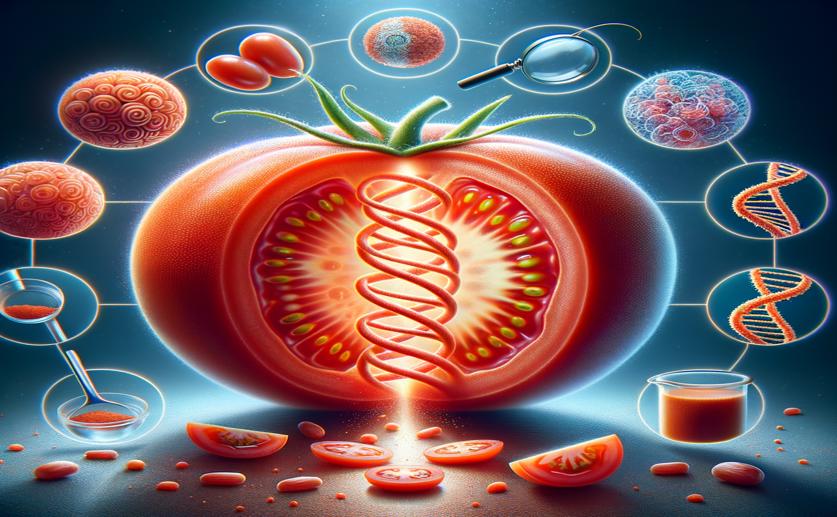
Tomato Fiber Reduces Fatty Liver by Improving Gut Health and Bile Acid Balance
Jenn Hoskins
11th June, 2024

Image Source: Natural Science News, 2024
Key Findings
- The study by the Beijing Academy of Agriculture and Forestry Sciences found that tomato pectin (TP) can help reduce symptoms of nonalcoholic fatty liver disease (NAFLD) in mice
- TP increased the diversity of gut microbiota, boosting beneficial bacteria and reducing harmful ones
- TP altered bile acid metabolism, leading to increased bile acid production and excretion, which helped lower blood lipid levels associated with NAFLD
References
Main Study
1) Tomato Pectin Ameliorated Hepatic Steatosis in High-Fat-Diet Mice by Modulating Gut Microbiota and Bile Acid Metabolism.
Published 10th June, 2024
https://doi.org/10.1021/acs.jafc.4c01598
Related Studies
2) Flavonoids from Whole-Grain Oat Alleviated High-Fat Diet-Induced Hyperlipidemia via Regulating Bile Acid Metabolism and Gut Microbiota in Mice.
3) Targeting the gut microbiota with resveratrol: a demonstration of novel evidence for the management of hepatic steatosis.
4) Noni (Morinda citrifolia L.) fruit phenolic extract supplementation ameliorates NAFLD by modulating insulin resistance, oxidative stress, inflammation, liver metabolism and gut microbiota.



 9th April, 2024 | Greg Howard
9th April, 2024 | Greg Howard